
Vibrant Vung Tau: The Coastal Gem of Vietnam
Vung Tau, located on Vietnam's southeastern coast, is a captivating destination offering a blend of natural beauty, historical significance, and modern charm. This coastal city is renowned for its sandy beaches, lush green hills, and a relaxed atmosphere that provides a perfect escape from the bustling metropolises of Vietnam. Tourists flock to Vung Tau for its scenic ocean views, serene temples, and vibrant local culture. Explore the iconic Christ the King statue, which stands majestically atop Small Mountain, offering panoramic vistas of the city and the sea. The statue is not only a significant religious site but also a testament to the city's rich heritage. For history enthusiasts, the White Palace, a colonial-era mansion, provides a fascinating glimpse into Vung Tau's past, with its French architecture and historical artifacts. Vung Tau's beaches, such as Back Beach and Front Beach, are ideal for sunbathing, swimming, and enjoying water sports. The city also boasts a lively culinary scene, with seafood being a highlight. Stroll through the local markets to taste fresh seafood dishes and other Vietnamese delicacies. Whether you are looking for adventure, relaxation, or cultural experiences, Vung Tau offers something for every traveler.
Local tips in Vung Tau
- Visit Vung Tau on weekdays to avoid the weekend crowds and enjoy a more peaceful experience.
- Rent a motorbike to explore the city and its surroundings at your own pace.
- Don't miss the seafood markets for the freshest catch and unique local dishes.
- Carry cash, as many local vendors and smaller establishments do not accept credit cards.
- Wear comfortable walking shoes, especially if you plan to hike up to the Christ the King statue.
Neighbourhoods in Vung Tau
Vibrant Vung Tau: The Coastal Gem of Vietnam
Vung Tau, located on Vietnam's southeastern coast, is a captivating destination offering a blend of natural beauty, historical significance, and modern charm. This coastal city is renowned for its sandy beaches, lush green hills, and a relaxed atmosphere that provides a perfect escape from the bustling metropolises of Vietnam. Tourists flock to Vung Tau for its scenic ocean views, serene temples, and vibrant local culture. Explore the iconic Christ the King statue, which stands majestically atop Small Mountain, offering panoramic vistas of the city and the sea. The statue is not only a significant religious site but also a testament to the city's rich heritage. For history enthusiasts, the White Palace, a colonial-era mansion, provides a fascinating glimpse into Vung Tau's past, with its French architecture and historical artifacts. Vung Tau's beaches, such as Back Beach and Front Beach, are ideal for sunbathing, swimming, and enjoying water sports. The city also boasts a lively culinary scene, with seafood being a highlight. Stroll through the local markets to taste fresh seafood dishes and other Vietnamese delicacies. Whether you are looking for adventure, relaxation, or cultural experiences, Vung Tau offers something for every traveler.
When is the best time to go to Vung Tau?
Iconic landmarks you can’t miss
Back beach
Discover the beauty and vibrancy of Back Beach in Ba Ria - Vung Tau, Vietnam, where golden sands and stunning sunsets create unforgettable memories.
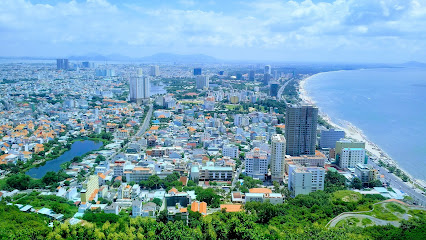
Jesus Christ Statue
Explore the breathtaking Jesus Christ Statue in Vung Tau, Vietnam, a majestic religious landmark with stunning panoramic views and serene surroundings.
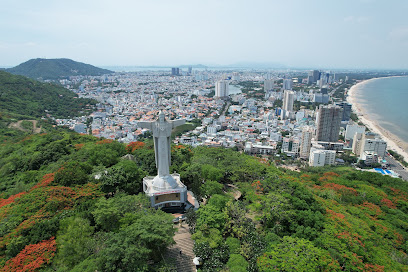
Front Beach Park
Experience the scenic beauty and lively atmosphere of Front Beach Park in Vung Tau, Vietnam - a perfect blend of nature and culture.
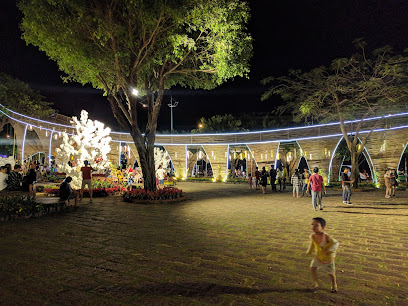
Bãi Sau Vũng Tàu
Discover the beauty of Bãi Sau Vũng Tàu, a stunning beach destination in Vietnam perfect for relaxation, adventure, and local culinary delights.
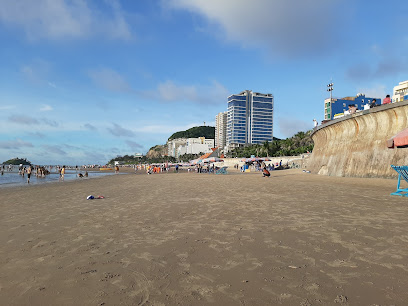
Dinh Co Temple
Explore the serene beauty of Dinh Co Temple, a cultural gem in Long Hai, Vietnam, blending spirituality and stunning landscapes for an unforgettable experience.
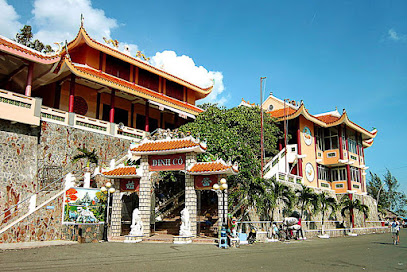
Thich Ca Phat Dai Pagoda
Explore the tranquility of Thich Ca Phat Dai Pagoda, a stunning Buddhist temple in Vung Tau, Vietnam, where peace and spirituality blend beautifully.
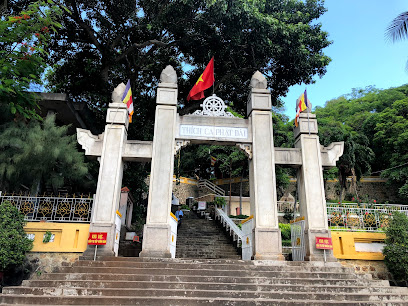
Đền Thánh Đức Mẹ Bãi Dâu
Discover the spiritual serenity of Đền Thành Đúc Mẹ Bãi Dâu, a beautiful pilgrimage site offering breathtaking ocean views and peaceful contemplation in Vũng Tàu, Vietnam.
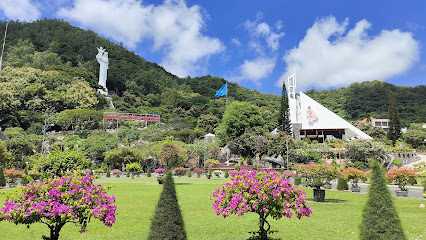
VUNG TAU Market
Discover the vibrant flavors and unique crafts of VUNG TAU Market, a must-visit for tourists seeking authentic Vietnamese culture and cuisine.
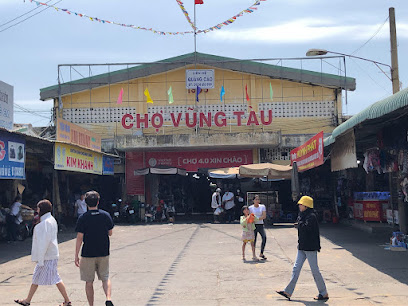
Worldwide Arms Museum
Discover military history and fascinating artifacts at the Worldwide Arms Museum in Vung Tau, Vietnam—a treasure trove for history enthusiasts.
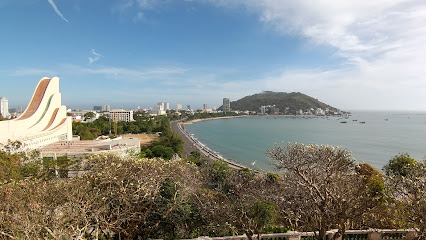
Vung Tau Lighthouse
Explore the historic Vung Tau Lighthouse and immerse yourself in breathtaking views of the South China Sea, a true highlight of Vung Tau, Vietnam.
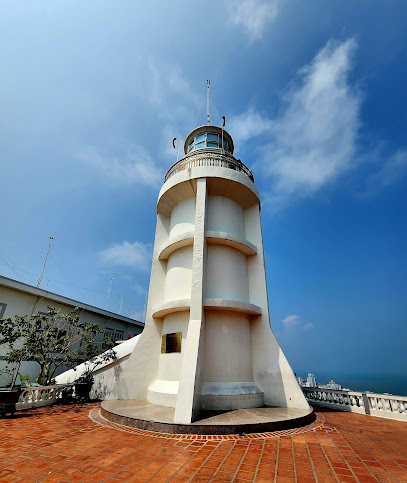
Bai Dau beach.
Experience the serene beauty and vibrant culture of Bai Dau Beach, a must-visit tourist attraction in Vung Tau, Vietnam.
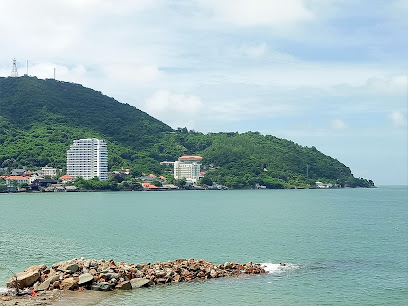
Chơn Không Monastery
Discover serenity at Chơn Không Monastery in Vũng Tàu, a beautiful Buddhist temple offering peace, meditation, and stunning architecture.
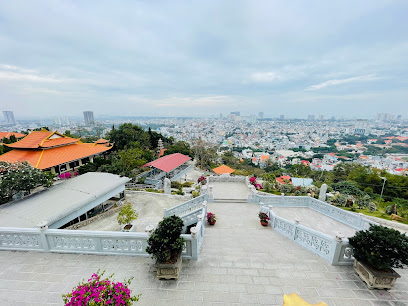
Bà Rịa–Vũng Tàu Provincial museum
Explore the rich tapestry of Vietnam's history at the Bà Rịa–Vũng Tàu Provincial Museum with fascinating exhibits and cultural treasures.
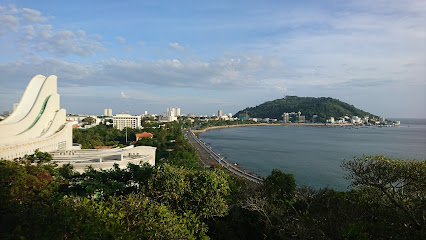
Front Beach
Discover the breathtaking beauty of Front Beach in Vũng Tàu, Vietnam, where golden sands meet vibrant local culture and thrilling activities.
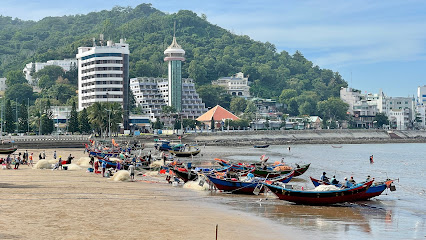
Bạch Dinh (White Palace Historical Cultural Relic)
Explore Bach Dinh, a historical marvel in Vung Tau, Vietnam, where elegance meets the rich tapestry of cultural heritage.
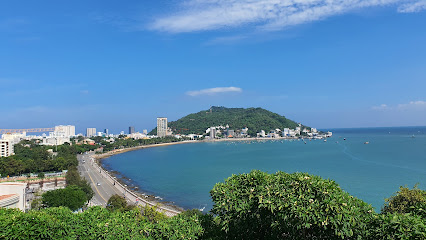
Unmissable attractions to see
Back beach
Discover the tranquil beauty and vibrant atmosphere of Back Beach, a perfect retreat for sun and sea lovers in Vũng Tàu, Vietnam.
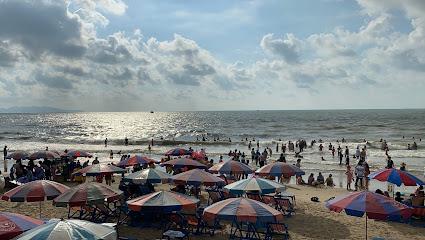
Hồ Mây Park Vũng Tàu
Explore Hồ MáY Park in Vũng Tàu: A perfect blend of nature, recreation, and local culture awaits you at this serene escape.
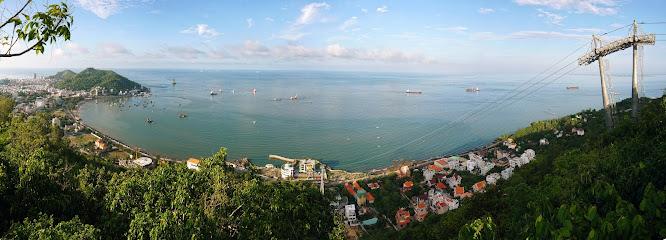
Dinh Co Temple
Experience the spiritual serenity and cultural richness of Dinh Co Temple, a coastal gem in Long Hai, Vietnam.
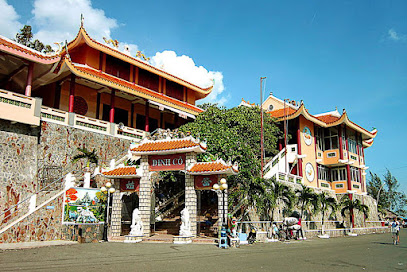
Thich Ca Phat Dai Pagoda
Explore the spiritual heart of Vung Tau at Thich Ca Phat Dai Pagoda, a serene Buddhist temple surrounded by breathtaking landscapes.
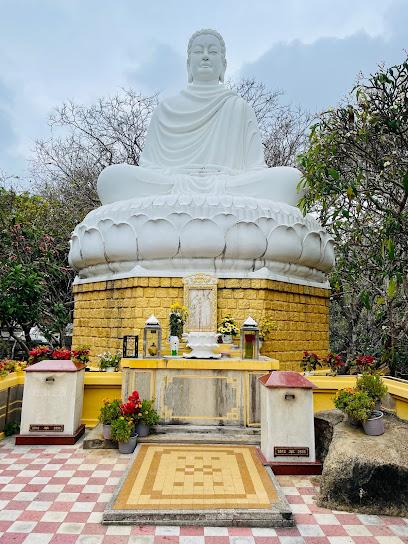
Worldwide Arms Museum
Explore the Worldwide Arms Museum in Vung Tau, Vietnam - a treasure trove of military history showcasing an extensive collection of arms and artifacts.
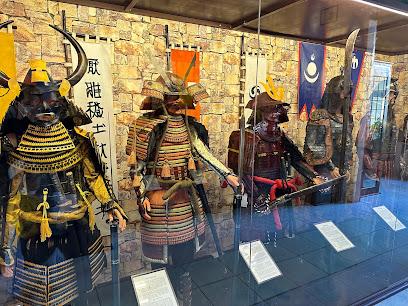
Historic area Minh Dam
Discover the enchanting Minh Dam, where history meets breathtaking nature in Vietnam's stunning Ba Ria - Vung Tau region.
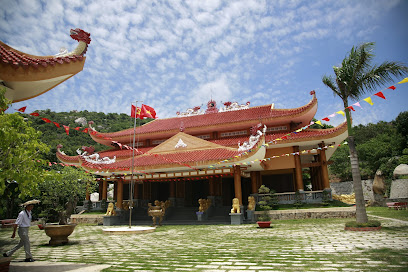
Bai Dau beach.
Explore the serene beauty of Bai Dau Beach in Vung Tau, Vietnam—where golden sands meet azure waters in a tropical paradise.
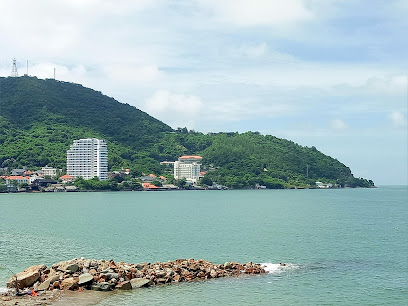
Front Beach
Discover the beauty of Front Beach in Vũng Tàu, a perfect blend of relaxation, vibrant culture, and delicious seafood cuisine along Vietnam's stunning coastline.
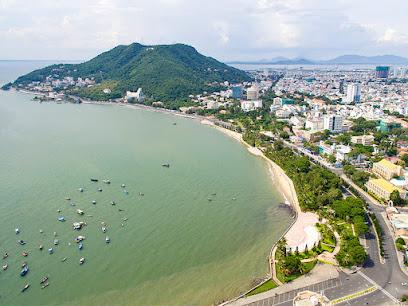
Bạch Dinh (White Palace Historical Cultural Relic)
Discover the elegance of Bạch Dinh, Vũng Tàu's historical palace with stunning gardens and captivating architecture, a must-visit for every traveler.
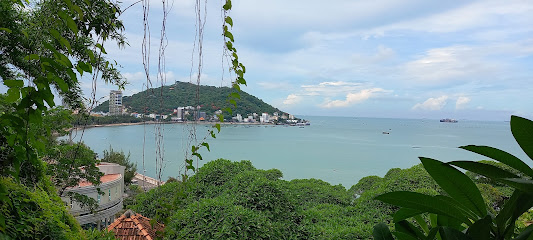
Can Thanh Park
Can Thanh Park offers a tranquil retreat in Ho Chi Minh City with beautiful coastal views, lush greenery, and fun for the whole family.
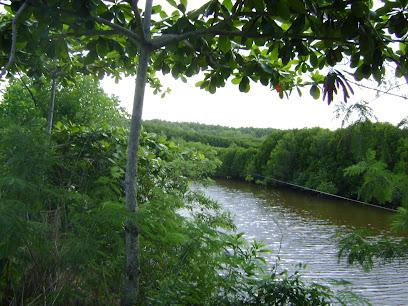
Flagpole Park
Explore Flagpole Park, a serene urban oasis in Vung Tau, Vietnam, perfect for relaxation and enjoying nature's beauty.
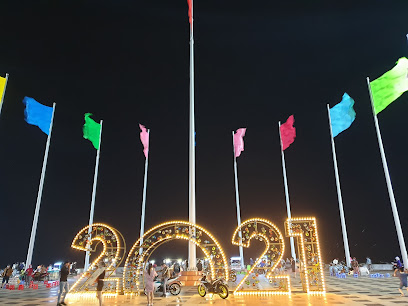
Tao Phung Park
Discover the tranquility of Tao Phung Park in Vung Tau, Vietnam - a perfect escape for nature lovers and families alike.
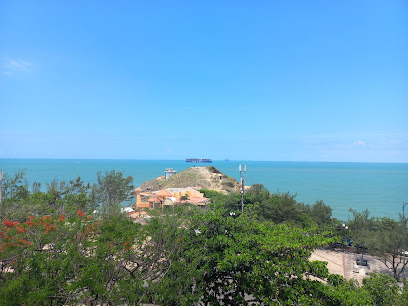
Cap Saint-Jacques
Discover the breathtaking beauty of Cap Saint-Jacques in Vũng Tàu, Vietnam, where stunning coastal views and relaxing beaches await you.
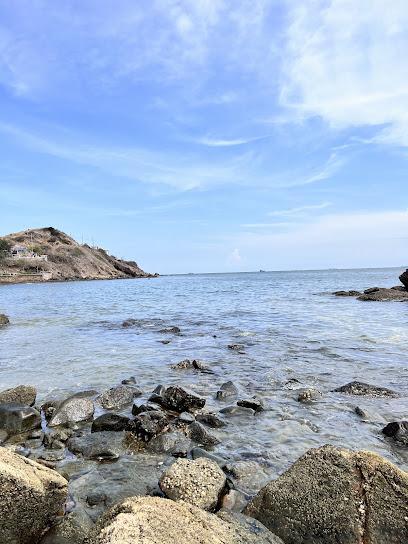
Triangle Park
Discover the serene beauty of Triangle Park, Vung Tau - a perfect blend of nature, culture, and tranquility in Vietnam's coastal paradise.
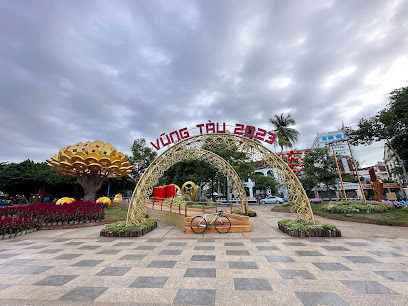
White Rabbit Amusement Park
Discover the joy and excitement of White Rabbit Amusement Park in Vung Tau, Vietnam, where thrilling rides and family fun await you.
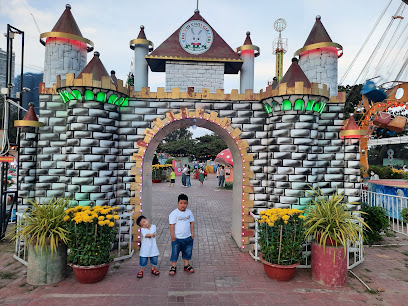
Essential places to dine
Gành Hào Seafood Restaurant
Experience authentic Vietnamese seafood at Gành Hào Seafood Restaurant in Vũng Tàu – where fresh flavors meet stunning ocean views.
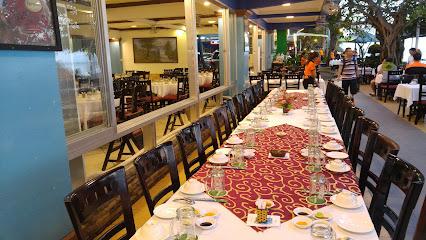
Gành Hào 2 Seafood Restaurant
Discover exquisite seafood at Gành Hào 2 Seafood Restaurant in Vũng Tàu - a must-visit for food lovers seeking authentic flavors.
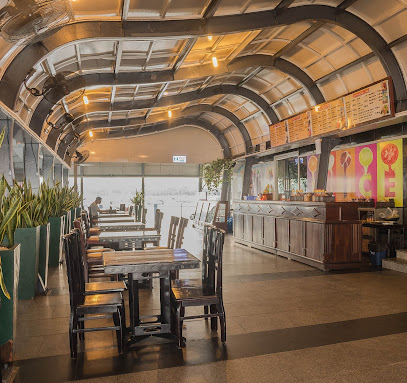
Cô Ba Restaurant
Discover authentic Vietnamese cuisine at Cô Ba Restaurant in Vũng Tàu - where every dish tells a story.
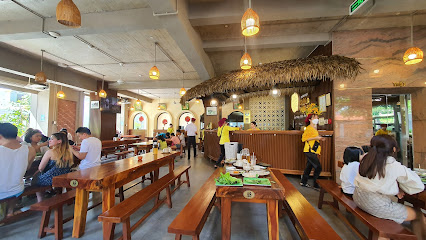
La Sirena
Experience exquisite seafood dining at La Sirena in Vung Tau, where fresh flavors meet stunning ocean views.
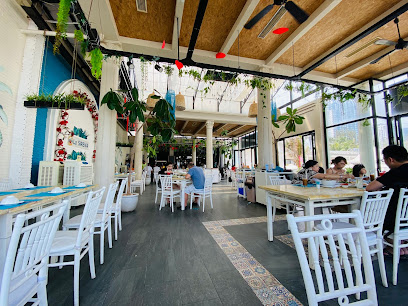
Van Chai Restaurant
Discover the authentic taste of Vietnam at Van Chai Restaurant in Vung Tau—where traditional flavors meet modern dining.
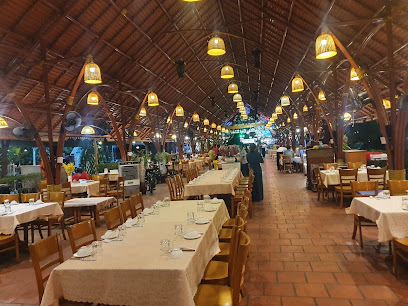
Lam Duong Restaurant
Experience the best of Vietnamese cuisine at Lam Duong Restaurant in Vung Tau – where tradition meets flavor in every dish.
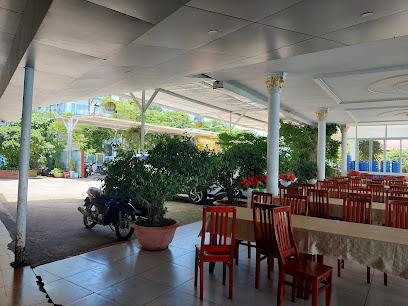
Sushi Tokyo Restaurant
Experience the best of Japanese cuisine with fresh sushi rolls and authentic dishes at Sushi Tokyo Restaurant in Vung Tau.
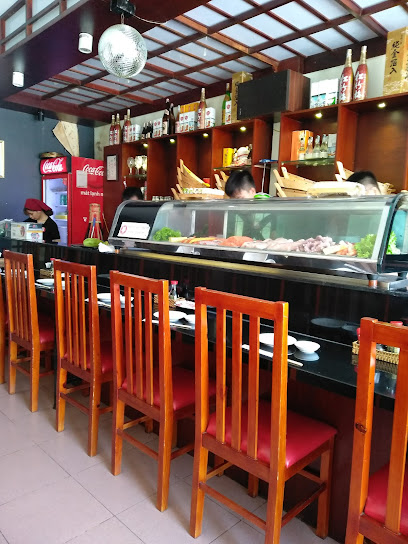
David Pizzeria
Savor authentic Italian flavors at David Pizzeria in Vung Tau – where every slice is crafted with passion and tradition.
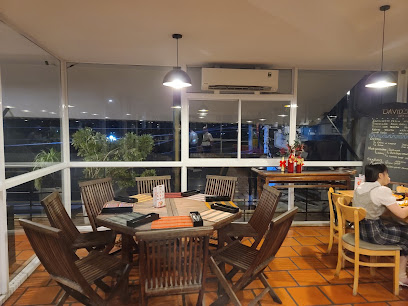
Rhino Restaurant
Discover authentic Vietnamese cuisine at Rhino Restaurant in Vung Tau - a perfect blend of tradition and modernity.
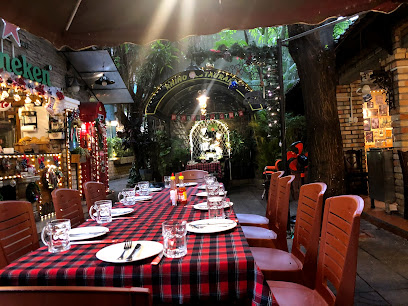
Lan Rừng Coffee & Restaurant
Experience authentic Vietnamese flavors at Lan Rừng Coffee & Restaurant in Vũng Tàu - where delicious cuisine meets stunning views.
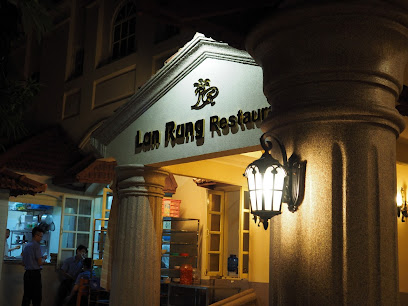
Bistro Nine
Experience exquisite French cuisine at Bistro Nine in Vung Tau – where every dish tells a story of culinary passion.
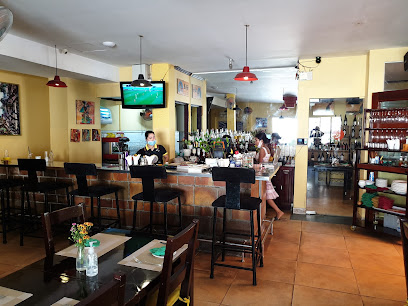
Matildas Restobar
Discover the flavors of Western cuisine at Matildas Restobar in Vung Tau—where every meal is a delightful experience.
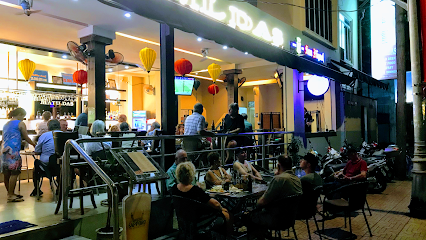
Taj Grill
Discover the rich flavors of India at Taj Grill in Vung Tau, where authentic dishes meet warm hospitality.
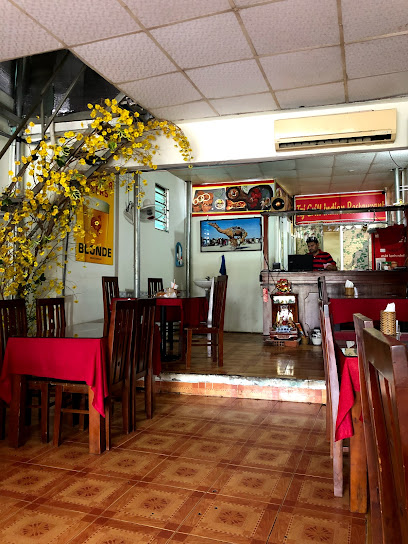
Belly's Watering Hole
Discover the charm of Belly's Watering Hole in Vung Tau – where Western flavors meet Vietnamese hospitality for an unforgettable dining experience.
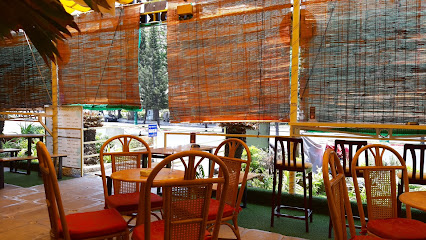
SKY GARDEN -Seafood & Coffee-
Discover exquisite seafood and aromatic coffee at Sky Garden in Vung Tau – where culinary delights meet stunning seaside views.
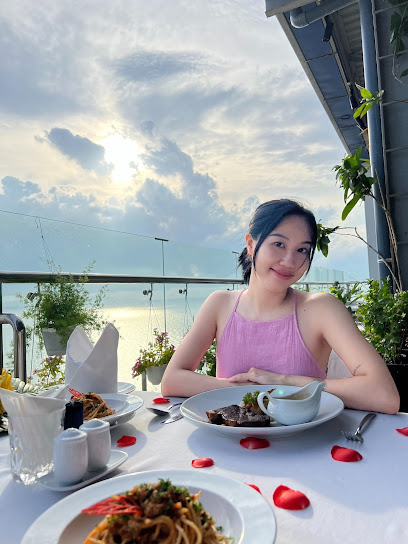
Markets, malls and hidden boutiques
Lotte Mart Vung Tau
Discover local flavors and global goods at Lotte Mart Vung Tau, the ultimate shopping destination in Vietnam's coastal paradise.
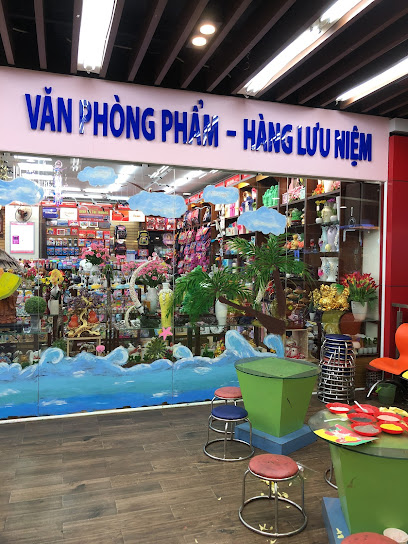
VUNG TAU Market
Explore the vibrant VUNG TAU Market for an authentic taste of Vietnamese culture, delicious street food, and unique local crafts.
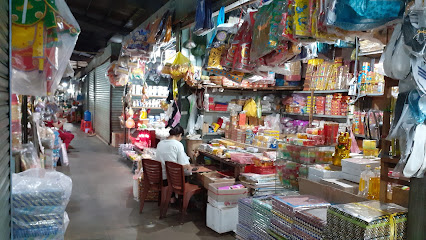
YaMe.vn
Explore the vibrant fashion scene at YaMe.vn in Vũng Tàu, where local style meets modern trends in a welcoming shopping environment.
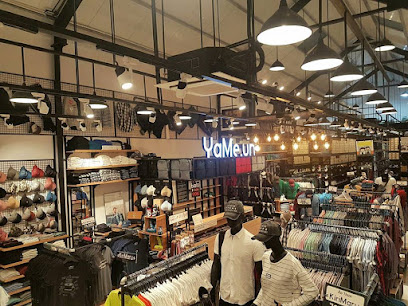
M90 Shop
Explore M90 Shop in Vung Tau for the latest in fashion, offering a unique blend of style and quality for every tourist's wardrobe.
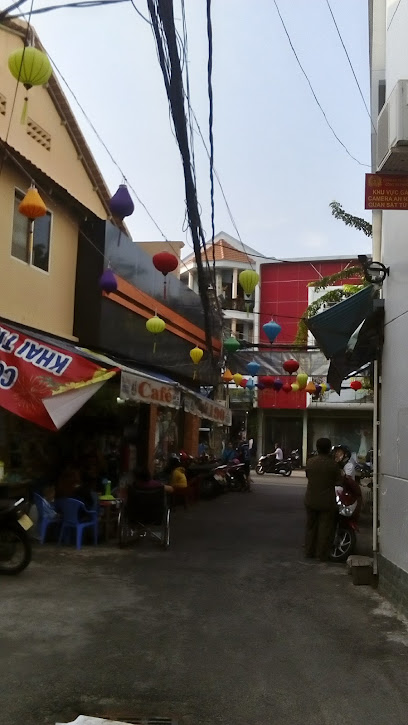
Biển vũng tàu
Discover Vung Tau Beach, a stunning seaside destination in Vietnam with golden sands, vibrant entertainment, and rich cultural experiences.
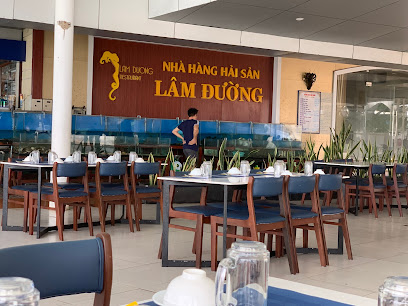
Moss Vũng Tàu - Phụ kiện Quà tặng
Explore Moss Vũng Tàu for unique gifts, fashion accessories, and local treasures that reflect the heart of Vietnam.
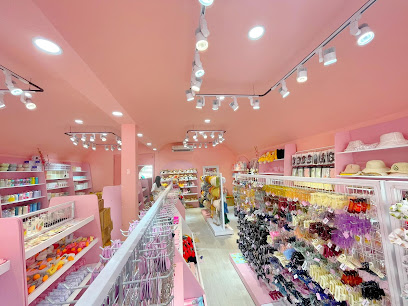
Hoang Phuc International - Ba Cu - Vũng Tàu
Discover the ultimate fashion experience at Hoang Phuc International, Vung Tau's premier clothing destination for trendy outfits and stylish accessories.
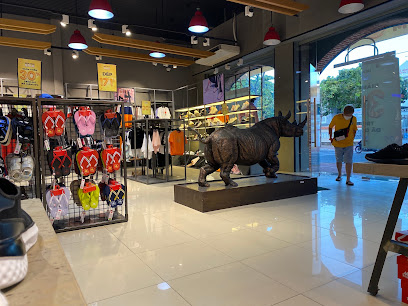
Nhóc Giftshop Vũng Tàu
Discover unique gifts and local crafts at Nhóc Giftshop Vũng Tàu, a must-visit for tourists looking for memorable souvenirs.
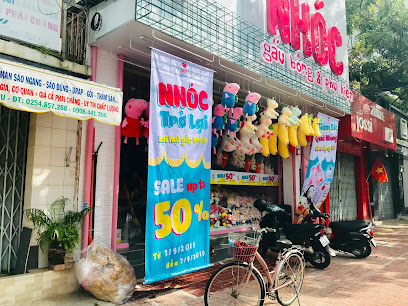
Adam Store Vũng Tàu
Discover the ultimate men's fashion destination in Vũng Tàu at Adam Store, where style meets quality and sophistication.
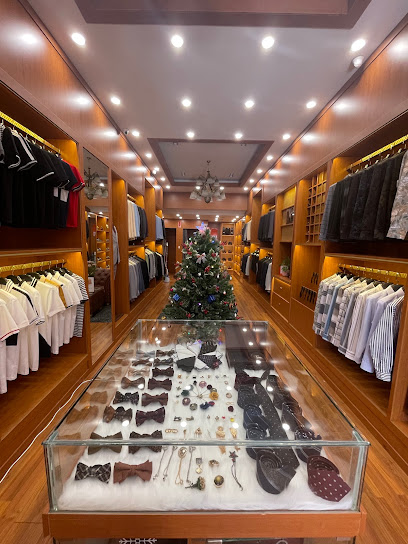
Routine Vũng Tàu
Explore the latest fashion trends for men and women at Routine Vũng Tàu, where style meets comfort in a chic shopping environment.
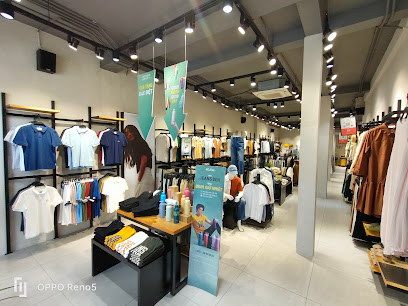
Biluxury Vung Tau
Explore Biluxury Vung Tau for the finest men's clothing, blending style and quality in the heart of Vietnam's coastal paradise.
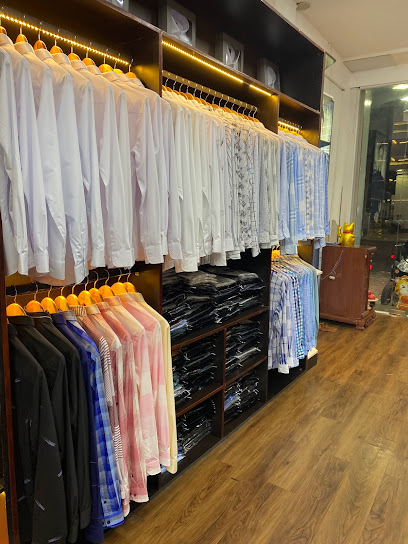
cửa hàng Việt tiến House Vũng Tàu
Explore stylish men's apparel at Việt Tiến House, a premier clothing store in Vũng Tàu, Vietnam, blending tradition with modern fashion.
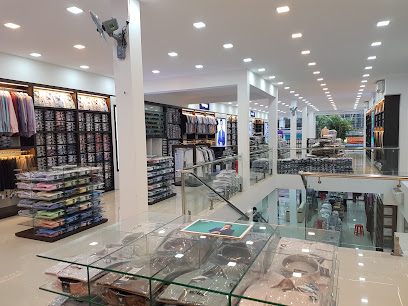
zShop Vũng Tàu
Explore zShop Vũng Tàu for the best cameras, accessories, and computer products to capture your unforgettable moments in Vietnam's coastal gem.
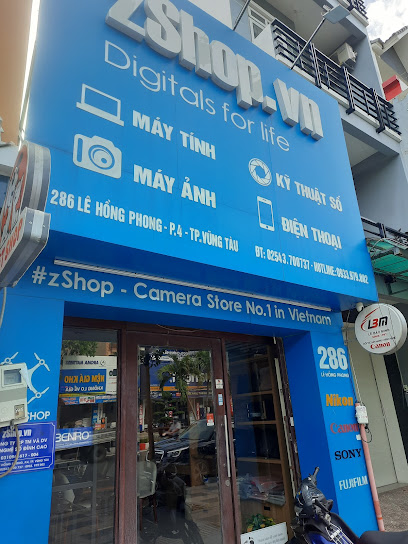
Couple TX Vũng Tàu
Explore Couple TX Vũng Tàu - the ultimate gift shop for unique souvenirs, stylish clothing, and exquisite jewelry in the heart of Vietnam.

Thời Trang Nam 4MEN Vũng Tàu
Discover stylish and contemporary men's clothing at Thời Trang Nam 4MEN in Vũng Tàu, your go-to destination for fashion-forward apparel.
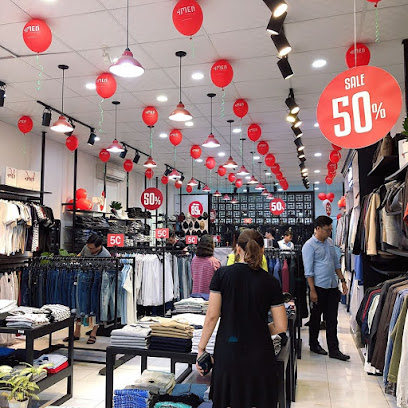
Essential bars & hidden hideouts
Ned Kelly's Pub
Discover Vung Tau's vibrant nightlife at Ned Kelly's Pub, where Western cuisine meets a lively atmosphere for an unforgettable experience.
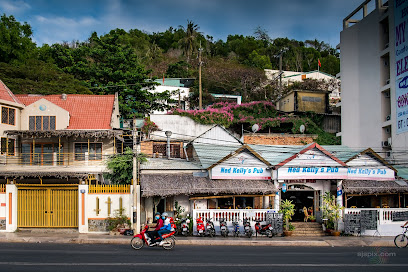
Cask Bar
Discover the vibrant nightlife of Vung Tau at Cask Bar, where lively ambiance meets delicious drinks by the beach.
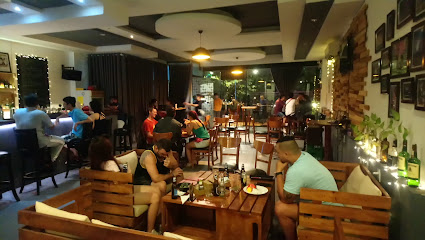
MK Bar
Experience the lively atmosphere of MK Bar, a top nightlife destination in Vung Tau, Vietnam, where drinks and fun come together!
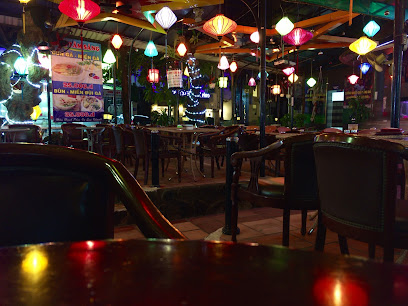
Corner Bar
Discover the vibrant atmosphere of Corner Bar in Vung Tau, where refreshing drinks and live music create the perfect night out.
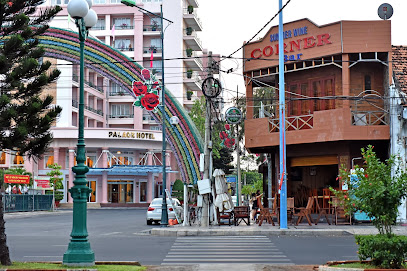
Do Duc Inn Bar
Experience the vibrant nightlife at Do Duc Inn Bar in Vung Tau, where great drinks and a lively atmosphere await every visitor.
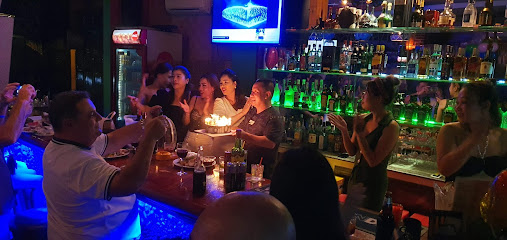
The Office
Experience the vibrant nightlife at The Office Bar in Vung Tau, where great drinks and a lively atmosphere await every visitor.
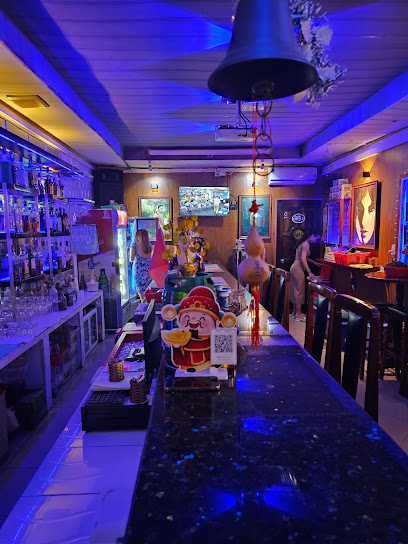
Mr.C's Speakeasy Pub
Experience the charm of Mr. C's Speakeasy Pub in Vung Tau, where unique cocktails and vibrant culture come together for an unforgettable night out.
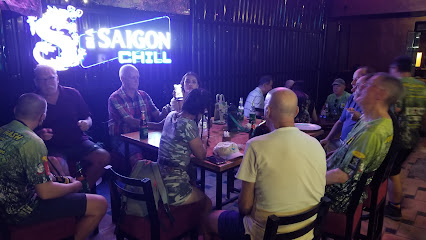
Roof Top Bar Breeze
Discover breathtaking views and a vibrant atmosphere at Vũng Tàu's premier rooftop bar, Roof Top Bar Breeze.
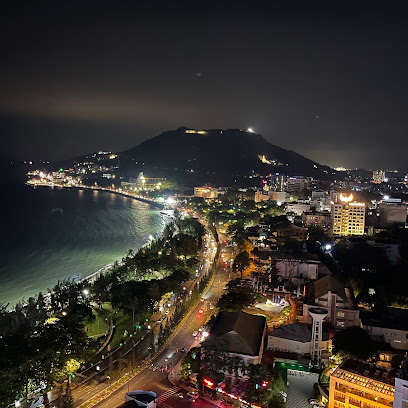
Elixir
Experience the vibrant nightlife of Vung Tau at Elixir Cocktail Bar, where expertly crafted cocktails and stunning views await.
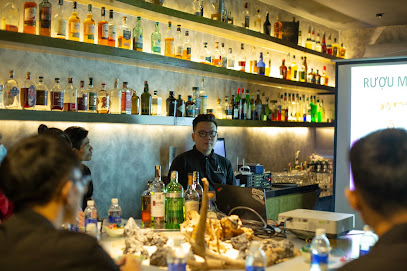
UNIC Restaurant & Lounge
Discover the perfect blend of culinary delights and vibrant nightlife at UNIC Restaurant & Lounge in Vũng Tàu, Vietnam.
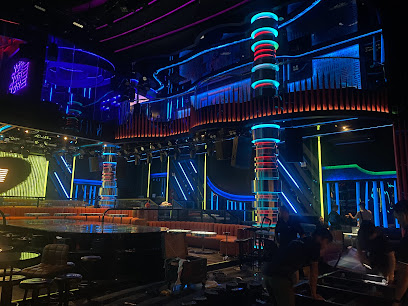
Peace and Love bar
Discover the vibrant nightlife at Peace and Love Bar in Vung Tau, where great cocktails and live music create unforgettable moments.
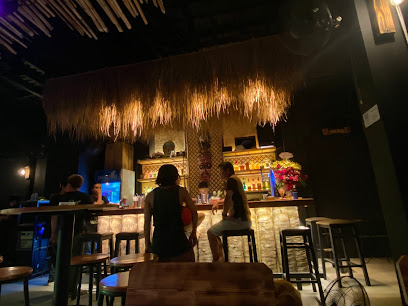
CU CU BAR
Discover the lively ambiance and diverse drink selection at CU CU BAR, the perfect nightlife destination in Vung Tau, Vietnam.
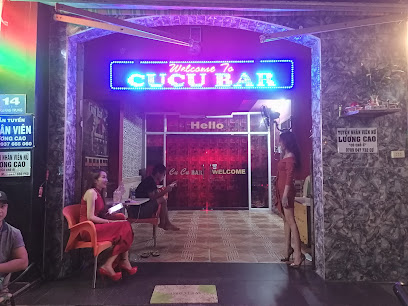
Cucumber Bar
Experience the vibrant nightlife at Cucumber Bar in Vung Tau with creative cocktails, live entertainment, and a lively atmosphere.
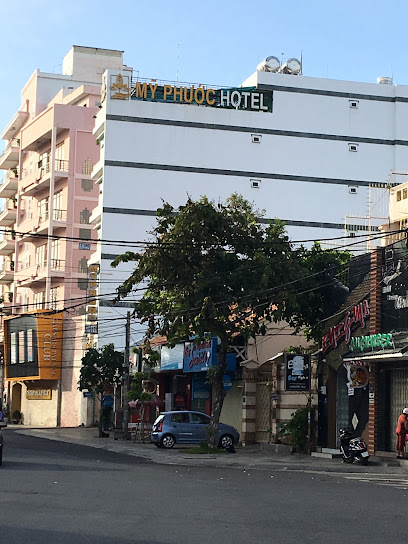
Mekong pub
Discover the lively Mekong Pub in Vung Tau, a hotspot for vibrant nightlife, delicious drinks, and live music, perfect for tourists and locals alike.
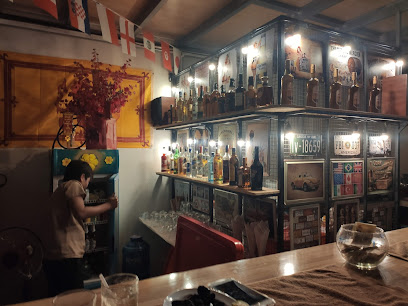
R&R Rock n Roll Bar
Experience the vibrant nightlife at R&R Rock n Roll Bar in Vũng Tàu, where friendly vibes and great music come together for an unforgettable evening.
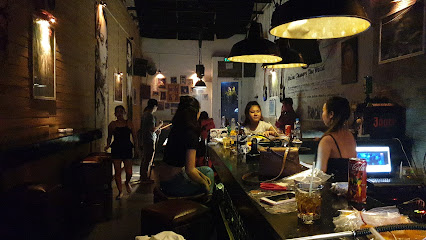
Local Phrases
-
- HelloXin chào
[sin chow] - GoodbyeTạm biệt
[tam byet] - YesCó
[kaw] - NoKhông
[kohng] - Please/You're welcomeLàm ơn
[lam uhn] - Thank youCảm ơn
[kam uhn] - Excuse me/SorryXin lỗi
[sin loy] - How are you?Bạn khỏe không?
[buhn kwe khohng] - Fine. And you?Khỏe. Còn bạn?
[khwe. kawn buhn] - Do you speak English?Bạn có nói tiếng Anh không?
[buhn koh noy tyeng ang kohng] - I don't understandTôi không hiểu
[toy kohng hyeow]
- HelloXin chào
-
- I'd like to see the menu, pleaseTôi muốn xem menu, làm ơn
[toy muhn sem menoo, lam uhn] - I don't eat meatTôi không ăn thịt
[toy kohng an tit] - Cheers!Chúc sức khỏe!
[chuck sook khwe] - I would like to pay, pleaseTôi muốn thanh toán, làm ơn
[toy muhn tanh toan, lam uhn]
- I'd like to see the menu, pleaseTôi muốn xem menu, làm ơn
-
- Help!Cứu với!
[kew vew-ee] - Go away!Đi đi!
[dee dee] - Call the Police!Gọi cảnh sát!
[goy kawng saht] - Call a doctor!Gọi bác sĩ!
[goy bahk see] - I'm lostTôi lạc đường
[toy lak doong] - I'm illTôi bị ốm
[toy bee ohm]
- Help!Cứu với!
-
- I'd like to buy...Tôi muốn mua...
[toy muhn moo-ah] - I'm just lookingTôi chỉ xem
[toy chee sem] - How much is it?Giá bao nhiêu?
[zah bao nyew] - That's too expensiveĐắt quá
[daht kwa] - Can you lower the price?Có thể giảm giá được không?
[kaw te zam zah dohng kohng]
- I'd like to buy...Tôi muốn mua...
-
- What time is it?Bây giờ là mấy giờ?
[by zwa la mye zwa] - It's one o'clockBây giờ là một giờ
[by zwa la moht zwa] - Half past (10)Rưỡi (mười)
[roo-ee (moo-ee)] - MorningBuổi sáng
[bwoy sahng] - AfternoonBuổi chiều
[bwoy chee-ew] - EveningBuổi tối
[bwoy toy] - YesterdayHôm qua
[hohm kwah] - TodayHôm nay
[hohm nigh] - TomorrowNgày mai
[nyai mahy] - 1Một
[moht] - 2Hai
[high] - 3Ba
[bah] - 4Bốn
[bohn] - 5Năm
[nahm] - 6Sáu
[sow] - 7Bảy
[bahy] - 8Tám
[tahm] - 9Chín
[cheen] - 10Mười
[moo-ee]
- What time is it?Bây giờ là mấy giờ?
-
- Where's a/the...?Chỗ...ở đâu?
[chow...uh doh] - What's the address?Địa chỉ là gì?
[yah chee la zee] - Can you show me (on the map)?Bạn có thể chỉ cho tôi (trên bản đồ) không?
[buhn kaw te chee chaw toy (truhn bahn doh) kohng] - When's the next (bus)?Khi nào là chuyến xe tiếp theo?
[khe nah-oh la chuyen se tee-ep the-oh] - A ticket (to ....)Một vé (đi ....)
[moht vay (dee ....)]
- Where's a/the...?Chỗ...ở đâu?
History of Vung Tau
-
Vung Tau has a rich history that dates back to ancient times, serving as an important maritime hub due to its strategic location. Archaeological findings suggest that the area was inhabited by early Vietnamese people who engaged in fishing and trade with neighboring regions.
-
During the 19th century, Vung Tau came under French colonial rule. The French recognized its potential as a seaside resort and began developing infrastructure, including roads, lighthouses, and colonial buildings. The town was known as Cap Saint Jacques and became a popular retreat for French officials and wealthy Vietnamese.
-
In World War II, Vung Tau was occupied by Japanese forces following their invasion of French Indochina in 1940. The town's strategic importance was highlighted during this period, and it saw some military activity until Japan's surrender in 1945.
-
During the Vietnam War, Vung Tau served as a major logistics and supply base for the United States military. The port and airfield were heavily utilized, and the town saw an influx of American soldiers and support staff. Post-war, many of the military facilities were repurposed for civilian use.
-
After the reunification of Vietnam in 1975, Vung Tau underwent significant changes. The town's economy shifted from primarily military and maritime activities to tourism and oil extraction. The discovery of offshore oil fields in the 1980s boosted the local economy and led to rapid urban development.
-
Vung Tau is known for its vibrant cultural heritage, which includes a blend of indigenous Vietnamese, French colonial, and modern influences. The town hosts several annual festivals such as the Whale Worshipping Festival (Nghinh Ong Festival) which honors the whale as a guardian deity of fishermen. Another notable event is the Dinh Co Festival, which is celebrated to pray for peace and prosperity.
Vung Tau Essentials
-
Vung Tau is located approximately 120 kilometers southeast of Ho Chi Minh City. The most common way to get there is by road. You can take a bus from Mien Dong Bus Station in Ho Chi Minh City, which typically takes around 2 to 3 hours. Alternatively, you can book a private car or taxi for a more comfortable journey. There is also a high-speed ferry service from Bach Dang Wharf in Ho Chi Minh City to Vung Tau, which takes about 90 minutes and offers scenic views of the Saigon River and the coast.
-
Vung Tau has a well-developed transportation network. Taxis and motorbike taxis (xe om) are readily available and can be flagged down on the streets or booked via apps like Grab. If you prefer a more independent mode of transport, you can rent a motorbike or bicycle to explore the city. There are also local buses that connect various parts of the city, though they may not be as convenient for tourists unfamiliar with the routes.
-
The official currency in Vietnam is the Vietnamese Dong (VND). Credit cards are widely accepted in hotels, restaurants, and larger shops, but it's advisable to carry cash for smaller establishments and street vendors. ATMs are plentiful in Vung Tau, and you can easily withdraw cash using international debit or credit cards. Ensure you have enough small denominations for convenience.
-
Vung Tau is generally safe for tourists, but like any city, it is important to take standard precautions. Avoid leaving your belongings unattended and be cautious in crowded areas where pickpocketing can occur. Some neighborhoods, like the area around the Back Beach (Bai Sau), may have higher instances of petty crime targeting tourists, especially at night. Always use reputable taxi services and avoid walking alone late at night.
-
In case of emergency, dial 113 for police, 114 for fire services, and 115 for medical emergencies. Vung Tau has several hospitals and clinics, including the Vung Tau General Hospital. It is advisable to have travel insurance that covers medical emergencies. Pharmacies are available for minor health issues, and many pharmacists speak basic English.
-
Fashion: Do dress modestly, especially when visiting religious sites like temples and pagodas. Avoid wearing revealing clothing. Religion: Do respect local customs and remove your shoes when entering religious sites. Public Transport: Do be respectful and give up your seat to elderly passengers. Don't eat or drink on public transport. Greetings: Do greet people with a smile or a slight bow. A handshake is also acceptable, especially in more formal settings. Eating & Drinking: Do try local delicacies and street food. Don't refuse food or drink offered by hosts, as it can be considered impolite.
-
To experience Vung Tau like a local, visit the local markets such as Cho Vung Tau Market for fresh produce and traditional Vietnamese goods. Engage with locals, as they are generally friendly and willing to share stories about the city's history and culture. Don't miss the chance to visit landmarks like the Christ the King statue and the Vung Tau Lighthouse for panoramic views of the city. For a unique experience, try renting a motorbike and exploring the coastal roads at your own pace.
Trending Landmark in Vung Tau
-
Back beach
-
Jesus Christ Statue
-
Front Beach Park
-
Bãi Sau Vũng Tàu
-
Dinh Co Temple
-
Thich Ca Phat Dai Pagoda
-
Đền Thánh Đức Mẹ Bãi Dâu
-
VUNG TAU Market
-
Worldwide Arms Museum
-
Vung Tau Lighthouse
-
Bai Dau beach.
-
Chơn Không Monastery
-
Bà Rịa–Vũng Tàu Provincial museum
-
Front Beach
-
Bạch Dinh (White Palace Historical Cultural Relic)
Nearby Cities to Vung Tau
-
Things To Do in Ho Chi Minh City
-
Things To Do in Phan Thiet
-
Things To Do in Mui Ne
-
Things To Do in Can Tho
-
Things To Do in Dalat
-
Things To Do in Kratie
-
Things To Do in Buon Ma Thuot
-
Things To Do in Phnom Penh
-
Things To Do in Nha Trang
-
Things To Do in Kep
-
Things To Do in Kampot
-
Things To Do in Phu Quoc
-
Things To Do in Sihanoukville
-
Things To Do in Koh Rong
-
Things To Do in Quy Nhon
















